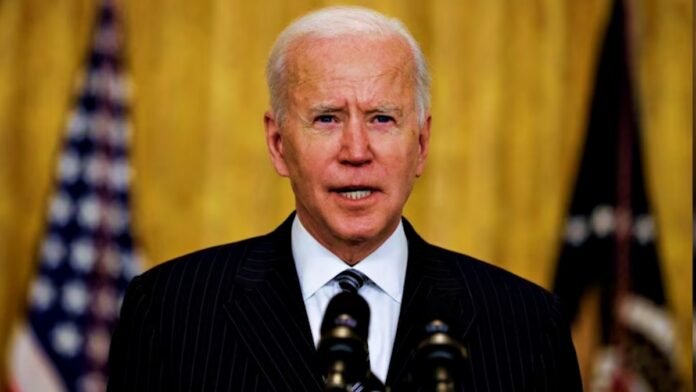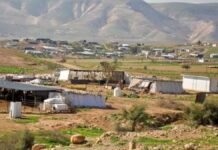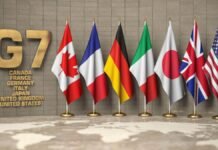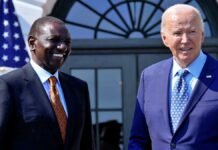
Washington D.C: US President Joe Biden has expressed his hope that the ongoing war between Israel and Hamas in Gaza will end by next Monday, as the two sides are reportedly close to reaching an initial agreement on a ceasefire and a hostage exchange. However, the deal is not finalized yet, and there are still some contentious issues that need to be resolved.
Biden’s statement
Biden made his statement on Monday, February 26, 2024, while visiting an ice cream shop in New York City, where he was interviewed by comedian Seth Meyers. Biden said that he was informed by his national security adviser that the negotiations between Israel and Hamas were progressing well and that they were close to a ceasefire. He said:
“Well I hope by the beginning of the weekend, I mean, the end of the weekend. My national security adviser tells me that we’re close. We’re close, it’s not done yet. And my hope is that by next Monday we’ll have a ceasefire.”
Biden’s statement came after he had faced criticism from some of his fellow Democrats and human rights groups for not putting enough pressure on Israel to stop its airstrikes on Gaza, which have killed more than 200 Palestinians, including many children. Biden has repeatedly affirmed Israel’s right to defend itself from Hamas’ rocket attacks, which have also killed 12 Israelis, but has also urged both sides to de-escalate the violence and protect civilians.
Hamas’ concessions
According to a report by CNN, Hamas, the Islamist militant group that controls Gaza, has backed off some of its key demands during the negotiations for the ceasefire and the hostage exchange, after Israel had rejected them as “delusional”. The report said that a US official, who spoke on condition of anonymity, told the news channel that Hamas had lowered its expectations on the number of Palestinian prisoners that it wanted Israel to release, and had also agreed to a partial withdrawal of Israeli forces from Gaza, instead of a full one. The official said:
“The major obstacles have been resolved in terms of Hamas insisting on a full withdrawal of Israeli forces and an end to the war. Hamas’ requirements for the numbers of Palestinians [prisoners that] would have to be freed has declined.”
The report also said that the negotiations were facilitated by a meeting between the US, Egyptian, Israeli intelligence chiefs and the Qatari prime minister in Paris last week, where they discussed the details of the potential deal. Egypt and Qatar have been mediating between Israel and Hamas, as they have close ties with both parties.
The stages of the deal
The report cited a person familiar with the developments, who said that Hamas had softened its stance ahead of the agreement on the first part of the deal, which could see the fighting halted and a group of hostages released. However, the person also said that there were still some challenges ahead, as the second part of the deal would involve more difficult issues, such as the release of male Israeli soldiers who are held captive by Hamas, and the long-term solution for the Gaza war. The person said:
“The people mentioned above said they expect more challenges to emerge later when tougher issues like release of male IDF hostages from Hamas captivity and end to the Gaza war will be discussed.”

The report said that those participating in the discussions had indicated that the deal would likely be implemented in stages, with the first stage lasting up to six weeks. The first stage could involve the release of certain Israeli hostages, such as women, children, the elderly, and the sick, in exchange for a smaller number of Palestinian prisoners compared to Hamas’ initial demands. The first stage could also include a ceasefire, a humanitarian corridor for aid to enter Gaza, and a partial withdrawal of Israeli forces from Gaza. The second stage could involve more negotiations on the release of the remaining hostages, the reconstruction of Gaza, and the political and economic future of the Palestinian territories.






















































